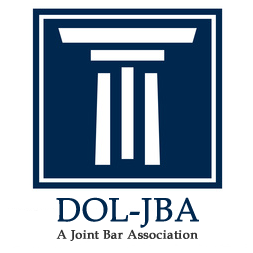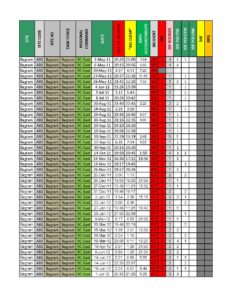The Importance of Psychological Test Data Disclosure in Defense Base Act Claims. Many Defense Base Act (“DBA”) claims feature mental health injuries. Often, the DBA insurance carrier schedules the injured worker for a defense medical examination (“DME”) with a mental health expert. The carrier’s expert might administer psychological tests to the claimant. This post answers a simple question: Must mental health experts produce psychological test data in the discovery process? Unsurprisingly, they must. There is no doubt that test data is discoverable in a DBA case. If the expert relied on the psychological test data when preparing their report, then that test data may be discovered. Still, we constantly address objections to test data discovery requests–even when the claimant sends the expert a written, signed release authorizing test data disclosure and a subpoena. Over the past few years, the constant objections have produced substantial litigation, and many Office of AdministrativeRead more
Jon Robinson is Serving as the 2023 President of the DOL-JBA
In 2023, I have the pleasure of serving as the President of the Department of Labor – Joint Bar Association, or DOL-JBA. It is a honor. The DOL-JBA is a national non-profit organization filled with claimant and defense attorneys committed to improving the legal process in (primarily) Longshore and Defense Base Act claims. In my opinion, the DOL-JBA is more than that. It is an avenue to finding a middle ground regarding common issues affecting the industry. The lawyers meet with individuals from the Office of Workers’ Compensation Programs and the Office of Administrative Law Judges to explore efficient resolutions to these issues. Sometimes, resolution is possible. But not always–not on all issues. Still, resolution of even one issue fuels agency and judicial efficiency. And that is one of the DOL-JBA’s main objective: To promote and improve the efficient handling of claims and cases administered or adjudicated by theRead more
How to Reduce DBA Fee Litigation By Adopting One Federal Rule
The Defense Base Act (“DBA”) allows a claimant to shift liability for attorney’s fees to the employer and insurance carrier, if certain criteria are satisfied. In that context, sometimes fee disputes arise. In a fee dispute, the employer or insurance carrier argues that a claimant attorney’s hourly rate is excessive, or that certain time entries should not be paid. For the most part, this post does not address hourly rates. Instead, this post addresses the amount of time billed for particular tasks…and a proposed way for the Office of Administrative Law Judges (“OALJ”) or the Office of Workers’ Compensation Programs (“OWCP”) to avoid lengthy and often contentious fee litigation. Those agencies could adopt a fee procedure similar to Local Rule 54.3 from the Northern District of Illinois. How Local Rule 54.3 Helps: Sometimes, the attorneys hired by DBA carriers make hypocritical objections to time entries on a claimant attorney’s fee petition. ByRead more
Post-Negotiation Delays Prevent Timely DBA Settlement Completion
Agreeing to settle your Defense Base Act claim is not the end of the DBA process. Over the past couple of years, we have noticed new trends that delay the settlement process. With so many claimants questioning the delays, I thought it best to address this issue with an article. Negotiating a Settlement Does Not End the Claim: Defense Base Act claims do not end when the parties negotiate a settlement. Unfortunately, there is a long wait time after negotiations. And that wait time has grown exceedingly long over the past few years. Whereas the delay used to be weeks, now it is months–sometimes four to eight months. After the parties negotiate a settlement number, the insurance carrier’s attorneys prepare the settlement paperwork. A settlement application is approximately 10 to 15 pages long. It details the claimant’s medical history, the disputes between the parties, and why the parties believe the settlementRead more
Test or Deny? How Invalid Psych Testing Affects Foreign DBA Claims
The Defense Base Act has a “test or deny” problem. Insurance carriers argue that DBA benefits cannot be awarded for work-related psychological injuries or disabilities absent psychological testing. That is false. The American Psychological Association does not require psychological testing prior to diagnosis and treatment. The current Diagnostic and Statistical Manual for Mental Disorders (or “DSM-5”) does not require psychological testing as a part of its diagnostic criteria. And DBA caselaw makes it abundantly clear that an employee need not meet the criteria of a specific diagnosis to successfully state the existence of an injury. Yet, the “test or deny” problem persists–especially for psychological claims involving foreign nationals. The administration of psychological tests to foreign DBA claimants begs some questions: Is it appropriate for defense experts to administer psychological tests to foreign nationals in the absence of normative or validation data to which the examinee’s answers can be compared? IsRead more
New Administrative Notice for Foreign National DBA Claims
A new Administrative Notice provides guidance for Defense Base Act claims involving foreign nationals. The Administrative Notice, known as In Re: Cases Involving Foreign Parties, Witnesses, and/or Evidence or 2021-MIS-00006, addresses issues regarding foreign testimony and “documentary evidence obtained outside the territorial jurisdiction of the United States . . . .” The Administrative Notice states (with footnotes omitted): Case No.: 2021-MIS-00006 In Re: CASES INVOLVING FOREIGN PARTIES, WITNESSES, AND/OR EVIDENCE ADMINISTRATIVE NOTICE Proceedings before the Office of Administrative Law Judges (“OALJ”) involving foreign parties, foreign witnesses, and/or foreign evidence may present complex adjudicative issues, particularly when a party is located outside the territorial jurisdiction of the United States, or when a party seeks to present testimony of a person located outside the territorial jurisdiction of the UnitedStates and/or evidence obtained outside the territorial jurisdiction of the United States. I issue this Administrative Notice in order to minimize the risk that the partiesRead more
The Misapplication of the Marino-Sewell Doctrine in War Zone DBA Claims
This posts addresses the frequently misapplied Marino-Sewell doctrine. This doctrine is often used as a basis for denying Defense Base Act workers compensation benefits to injured workers. The problem is that the Marino-Sewell doctrine does not support the denial of benefits when a legitimate adverse personnel decision co-exists with injurious working conditions or events. A Typical Real Life Example: In his Form LS-203, an Afghanistan-based employee alleged that he was exposed to war-risk hazards that led to the development of a psychological injury and disability. A “war-risk hazard” is a term that is often used to describe attacks, explosions, indirect fire, and more. In response to the injured worker’s claim, the carrier filed a Form LS-207. The carrier controverted—i.e., denied—the claim. The claim was controverted for the following reason: “Claimants inability to work is due to RIF in May 2019 from employment.” In this context, “RIF” means “reduction in force.” The carrier’s controversionRead more
Let’s Talk About Attack Logs in Defense Base Act Claims…
Let’s talk about the use of attack logs in Defense Base Act claims. These incredibly helpful logs, which many contracting companies maintain in the regular course and scope of business, are directly relevant to the existence of working conditions which could have caused or contributed to a DBA claimant’s injury. Yet, some insurance carriers often try to hide this discoverable information. Some have even claimed that they “have no records of attacks relating to Claimant or Employer’s property” even though they have attack logs (and more) in their possession. That’s a lie. So, I am going take the mystery out of attack logs. I am going to explain what they are, why they are relevant, what insurance carriers use them for, how the Office of Administrative Law Judges have responded to motions to compel, and how it prejudices a claimant when an insurance carrier hides relevant information. Finally, I willRead more
Viewing Pain on a Spectrum for Longshore (and DBA) “Disability”
The Ninth Circuit just issued a primer on pain as a disabling Longshore and Defense Base Act consideration. The case is Jordan v. SSA Terminals, LLC. I anticipate that this published decision will be cited in many legal briefs for a long time to come. Factual Background: In Jordan, the claimant significantly injured his back in 2014. He received conservative treatment and then, in 2018, a spinal fusion surgery. In the time between the injury and the surgery, the Longshore and Harbor Workers’ Compensation Act’s insurance company conducted surveillance. The videos from the surveillance, which were recorded in 2015 and 2016, showed the claimant engaging in various physical activities. A formal hearing was held to determine whether the claimant was “disabled” between 2016 and 2018. The Ninth Circuit focused on a few statements the claimant made at the hearing about his pain level. The claimant testified that he could perform tasks. But whenRead more
Major Change at OWCP: DFEC and DLHWC Merged!
Breaking news affecting all Defense Base Act claimants, employers, and carriers! The Office of Workers Compensation Programs merged the divisions that administer the Federal Employees Compensation Act, the Longshore and Harbor Workers’ Compensation Act, and the Defense Base Act. The news came in an e-mail from Director Rios. Notice from Antonio Rios: Here is Director Rios’ e-mail in full: Longshore Stakeholders, I am pleased to announce that the Office of Workers’ Compensation Programs (OWCP) is merging the Division of Longshore and Harbor Workers’ Compensation (DLHWC) with the Division of Federal Employees’ Compensation (DFEC). The two divisions will be consolidated into the Division of Federal Employees’, Longshore and Harbor Workers’ Compensation (DFELHWC), which I am excited and honored to lead as Director. The new organizational structure will allow OWCP to carry out its mission more efficiently and effectively. This merger will not change any processes, addresses, or points of contactRead more
- 1
- 2
- 3
- …
- 22
- Next Page »










